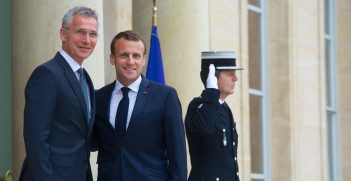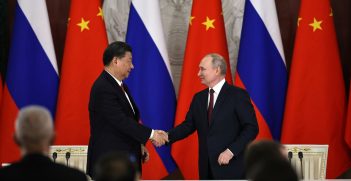Assessing the End of the Counteroffensive in Ukraine

The Ukrainian counteroffensive has been active since June 2023, but its success has been marginal so far with around 11 settlements recaptured from Russian control. There are fears the war has entered a stalemate with casualties on both sides rising.
When the war started on 24 February 2022, few gave the Ukrainians any chance of holding the Russians from conquering the entire country. President Volodymyr Zelensky himself expressed doubt. However, Ukrainians have managed to defy the odds and have even conducted large-scale counteroffensives such as in Kharkiv and Kherson, proving they can drive Russian forces back.
The most recent and highly anticipated counteroffensive, which began in June 2023, has not achieved the liberation of territories seen in the previous offensives.
The pace of the counteroffensive
As of August 2023, the counteroffensive has only liberated around 11 settlements, most of which are in the Zaporizhzhia oblast. One of the major strategic goals of the counteroffensive was to retake the city of Melitopol, a major logistical and supply hub for Russian military offensives. The slow pace of the offensive even has US intelligence officials expressing doubt about the ability of the Ukrainian armed forces to take the city before the infamous mud season sets in.
What is obvious here is that the counteroffensive is going slower than hoped for by both Ukraine and its international allies. Unless the Russian government has another power struggle, neither side is likely to gain any decisive victories on the battlefield. These unfortunate circumstances will lead governments, namely in Europe and the United States, to question the continuation of military aid to Ukraine.
This also means that the Russians will not outright win this war. President Vladimir Putin has greatly humiliated himself, his military, and Russia. His vision of establishing a Russian sphere of influence in Eastern Europe has failed, the weakness and corruption of the Russian armed forces have been put on full display, and the Russian economy has been hit hard by the US and European sanctions. Seeing as though neither side will be able to achieve an outright victory in this war, the prospect of a peace settlement need to be seriously considered.
The challenges of peace
Establishing a peace settlement will be no easy task. Russia’s war of aggression, which has specifically targeted Ukrainian civilians, will be difficult to forgive and forget. Russian atrocities committed in Bucha, Mariupol, Izyum, Lyman, and countless other villages throughout the country – many still ongoing in occupied territory – make this close to impossible.
Another obstacle to a peace settlement is the fact that the Russians have kidnapped over 16,000 Ukrainian children, deporting them to Russia. This crime has been recognised by the International Criminal Court, who has issued Putin with an arrest warrant. Good faith negotiations under these conditions seem like a distant prospect.
It certainly doesn’t help that the Russian precondition for any peace negotiation is that Ukraine must give up the Ukrainian territories of Donetsk, Luhansk, Zaporizhzhia, and Kherson, along with the recognition of the 2014 Russian annexation of Crimea. The Ukrainians also need to be officially neutral and concede to no membership in the North Atlantic Treaty Organisation (NATO). These demands are in many ways outrageous and will be hard to swallow for the Ukrainians.
The Russian annexation of the four Ukrainian regions last year was done under occupation with the outcome of the vote preordained. The concession by Ukraine to not join NATO will only make it easier for the Russians to invade in the future. A great example of this scenario was in Chechnya where, after losing the first war, the Russians signed a peace treaty, only to start a second war soon later. The next time round they were better prepared to conquer the territory lost in 1997. It is noteworthy that this exact scenario happened in Putin’s first year of his presidency back in 2000.
While time has changed, Putin has not.
Potential peace agreements
Any peace agreement that will end the current hostilities between Russia and Ukraine must be made by the Ukrainian government itself. Some politicians in Europe and the United States are advocating for cutting military aid to Ukraine to force them to concede territory to Russia. Both Europe and the United States through their military aid hold immense influence with respect to Ukraine’s ability to carry on the war. Terminating the aid would gift Russia a stronger position at the negotiating table, allowing them to gain more concessions. These suggestions are dangerously short-sighted.
Looking at the frontlines over the past few months, it is difficult to see how the Ukrainians will take back all the territories lost since 2014. At current estimates, any peace settlement will likely mean conceding the 2014 borders. A more realistic agreement would be for Russia to return to the 2022 borders before the invasion started, as these borders were the ones that Russia itself recognised before they invaded.
On NATO membership, if Ukraine is to concede its application, then an alternative security agreement must be devised. Without some form of security guarantee, they will remain vulnerable to another Russian attack. This cannot be allowed to happen again. Another alternative for Ukraine would be to have a bilateral security agreement with the United States outside of NATO, mirroring agreements they’ve made with Australia, South Korea, and Japan. This potential agreement can give Ukraine protection outside of NATO, deterring another Russian attack.
The war is far from over and the situation can change at any time. If the war does end with a negotiated settlement, it needs to be a lasting peace; one that guarantees a future war doesn’t happen again. Just because an agreement is signed by two governments doesn’t mean the violence will stop. Nor should negotiation happen just for the sake of negotiating. It must be done in good faith with the goal of preventing future aggression and conflict. The violence in Ukraine must end here. Too many lives have been lost.
Eric Carstensen is a 2022 graduate at the University of Sydney with a Bachelor of Arts/Advanced Studies majoring in international relations and history.
This article is published under a Creative Commons License and may be republished with attribution.





